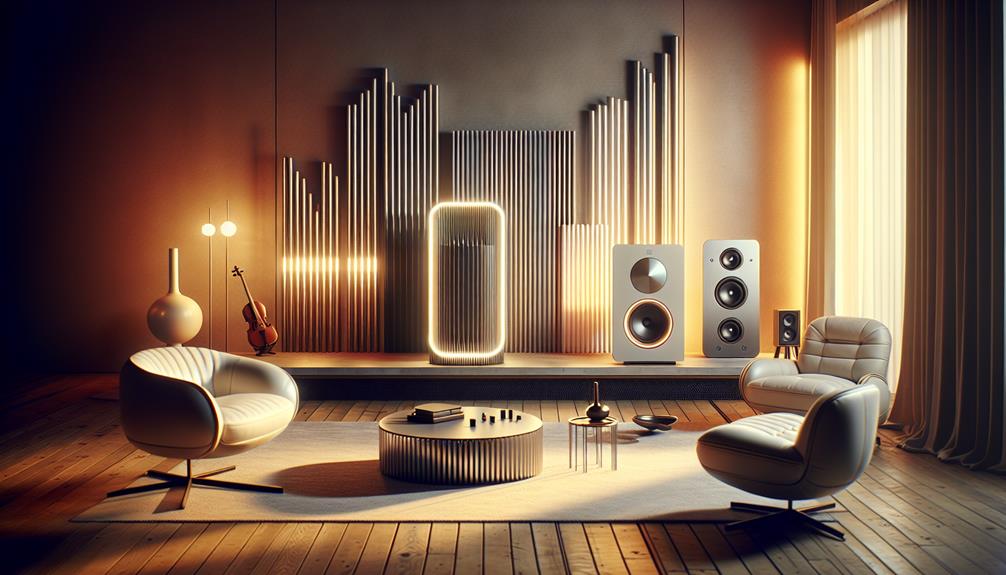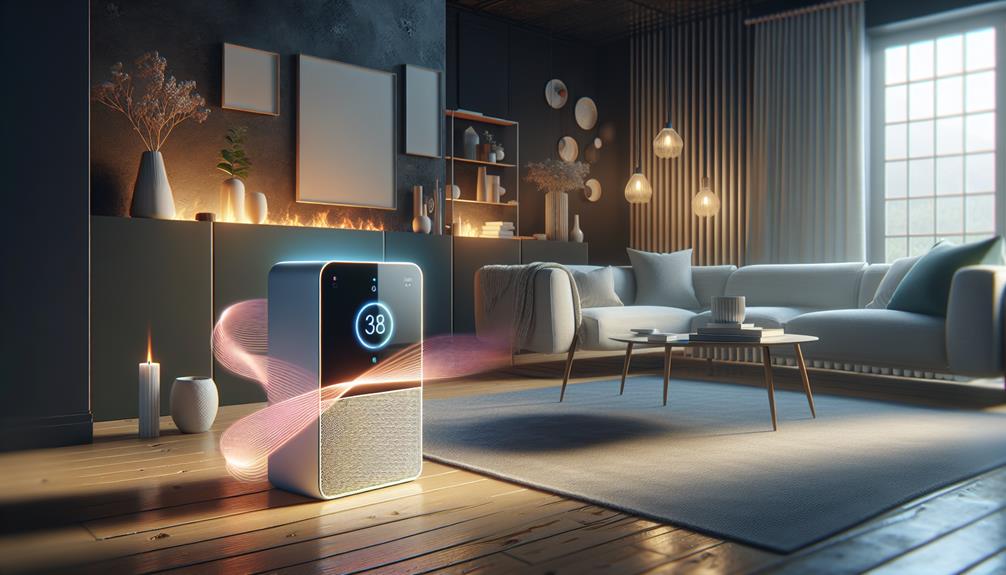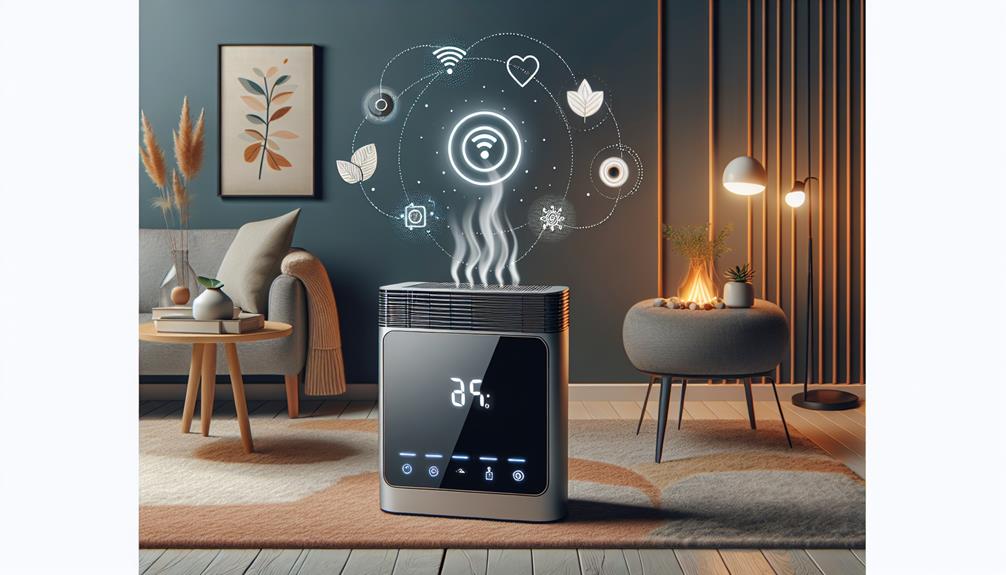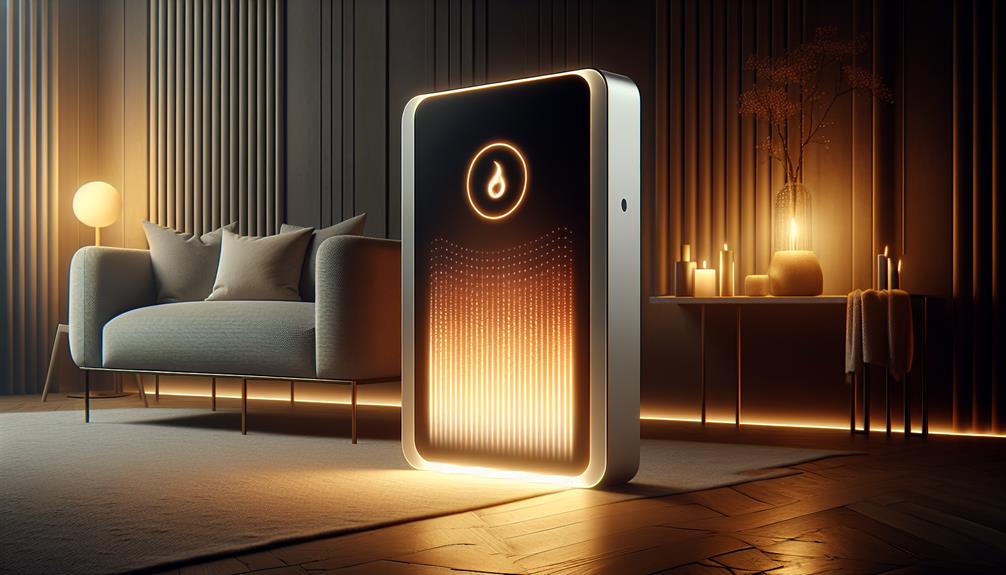As the winter season ushers in a brisk demand for indoor heating solutions, the emergence of smart heaters stands at the forefront of technological innovation in home comfort. These sophisticated devices not only promise to deliver precise temperature control but also integrate seamlessly with the burgeoning ecosystem of smart home technologies. With an array of features such as energy-efficient operation, remote accessibility, and even air quality enhancement, the new generation of smart heaters is poised to redefine our expectations of domestic warmth. As we examine the advancements that have transformed the humble heater into a centerpiece of smart home automation, one must ponder the implications of such advancements on future living spaces. Will these smart heating solutions be the harbinger of a new era in energy conservation and personalized comfort? The ensuing discussion seeks to unravel the potential that these innovative devices hold for shaping our daily lives in the colder months and beyond.
Key Takeaways
- Smart heaters like GoveeLife Space Heater Pro and GoveeLife Smart Heater Max optimize energy consumption and reduce carbon footprint through advanced algorithms and precise temperature control.
- Advancements in efficient heating, such as plug-in heaters and portable kinetic heaters, utilize advanced materials and intelligent thermal management systems to achieve precise temperature control and energy efficiency.
- Compact heaters like Toastyheater Review and Alpha Heater save space and deliver targeted warmth efficiently with high energy-to-heat conversion rates and advanced thermostatic controls.
- Integrating style with heating, heaters like Della 26' 1500W and Alpha Heater combine aesthetics with functionality, providing efficient temperature regulation and adaptive climate control while reflecting the market's values of energy efficiency.
Smart Heating Solutions Overview

As the demand for intelligent home automation surges, smart heating solutions like the GoveeLife Space Heater Pro and GoveeLife Smart Heater Max are at the forefront of revolutionizing indoor warmth through advanced technology and connectivity. These devices epitomize the advancements in energy-efficient heating technology, integrating sophisticated algorithms that adapt to user preferences and environmental conditions. By doing so, they optimize energy consumption, which has a consequential impact on household energy usage and costs. Smart heaters, through predictive analytics and self-regulating mechanisms, maintain desired temperatures with minimal waste, thereby reducing the carbon footprint. Their contribution to energy conservation illustrates a significant shift in how residential heating is managed, indicating a future where sustainability and comfort coexist seamlessly.
Advancements in Efficient Heating
The evolution of heating technology has brought forth a new generation of smart heaters, such as the Plug-in Heater and the Portable Kinetic Heater, which offer unprecedented efficiency through innovative design and energy-saving features. These eco-friendly heating solutions are crafted to reduce energy consumption and carbon footprint by utilizing advanced materials and intelligent thermal management systems.
Automation in heating technology has become integral, allowing for precise control over temperature settings and operational periods. This not only optimizes comfort but also enhances energy efficiency by adapting to real-time environmental changes and user preferences. The integration of smart sensors and algorithms in these heaters ensures a balance between maintaining optimal warmth and minimizing energy usage, thereby setting a new standard for efficient heating in residential and commercial spaces.
The Rise of Compact Heaters

Increasingly, consumers are turning to compact heaters, like the Toastyheater Review and Alpha Heater, for their space-saving designs and ability to deliver targeted warmth efficiently. The rise of energy-efficient compact heaters is a clear trend, driven by technological advancements and a heightened consumer awareness of ecological impacts. Such devices exemplify the nexus between convenience and sustainability, aligning with the broader initiative of exploring eco-friendly heating options.
These innovations are characterized by:
- High energy-to-heat conversion rates, minimizing waste.
- Advanced thermostatic controls for precise temperature regulation.
- Integration with smart home ecosystems for enhanced user convenience.
The analytical focus on these compact heaters reveals a market shift towards appliances that not only reduce the carbon footprint but also cater to the dynamic lifestyle of modern users.
Integrating Style With Heating
Merging aesthetics with functionality, modern heaters like the Della 26' 1500W and the Alpha Heater are redefining the expectations for residential warmth solutions. These advancements epitomize a trend where smart heaters and home decor are no longer mutually exclusive concepts. Instead, elegant designs are coupled with the technological prowess to seamlessly integrate into various interior motifs while providing efficient temperature regulation. The emphasis on smart heaters and energy efficiency reflects a market that values not just the visual appeal but also operational cost-effectiveness and environmental impact. Analyzing these products reveals a deliberate confluence of form and function, where the sleek exteriors house sophisticated heating technologies capable of adaptive climate control, user personalization, and optimized power consumption, marking a significant stride in the evolution of home heating systems.
Exploring Multi-functional Heaters

Building upon the integration of aesthetics and functionality in modern heating solutions, multifunctional heaters are setting new benchmarks for versatility in home climate control systems. These advanced devices embody the advantages of multifunctional heaters and encapsulate the benefits of smart heating technology. They are designed to be adaptive, offering a suite of features that extend beyond traditional heating.
- Space Optimization: Combining heating with other functions such as air purification and humidification to reduce the need for multiple devices.
- Energy Efficiency: Smart technologies enable these heaters to automatically adjust output based on room occupancy and temperature, leading to energy savings.
- Enhanced User Experience: Intuitive interfaces and connectivity with smart home ecosystems for seamless control and monitoring.
Analyzing these attributes reveals a trajectory towards more sustainable, user-centric, and integrated home environments.
Innovations in Portable Warmth
Harnessing advancements in technology, portable heaters are now offering unprecedented levels of warmth and convenience for consumers seeking mobile comfort solutions. Smart heater technology has become increasingly sophisticated, allowing portable heating devices to offer a blend of efficiency and user-friendly features. Informed by a deep understanding of thermodynamics and user experience design, these innovations are reshaping the landscape of personal warmth.
| Feature | Emotional Benefit |
|---|---|
| Customizable Settings | Personalized Comfort |
| Energy Efficiency | Peace of Mind |
| Lightweight Design | Freedom of Movement |
Technical analysis reveals that the latest portable heaters are not only adept at maintaining consistent temperatures but also excel in energy conservation, reducing the environmental footprint. With a focus on functionality, safety, and design, the future of portable warmth looks promising, as it continues to integrate seamlessly into the lives of consumers.
Smart Heaters: A Stylish Necessity

Smart heaters are increasingly becoming a staple in modern homes, combining aesthetic appeal with advanced functionality to deliver not only warmth but also an element of style to any living space. Contemporary smart heater design trends highlight a fusion of form and function, where energy-efficient heating technology is seamlessly integrated into devices that complement interior decor. Manufacturers are keen to offer:
- Sleek, minimalist designs that fit various decor styles
- Adaptive heating elements that optimize energy consumption
- Intuitive interfaces for user-centric control and automation
These innovations reflect an analytical approach to product development, where the emphasis is on optimizing performance while maintaining high design standards. As a result, smart heaters not only serve as effective climate control solutions but also as stylish accessories that enhance the aesthetic value of modern interiors.
Frequently Asked Questions
How Do Smart Heaters Integrate With Existing Home Automation Systems, Like Google Home or Amazon Alexa?
Smart heaters, such as the GoveeLife Smart Heater Max, typically integrate with home automation systems through wireless connectivity. Users can control these devices via voice commands, leveraging platforms like Google Home or Amazon Alexa. This integration facilitates zonal heating, allowing precise temperature control in designated areas. Such systems exemplify a technical synergy that enhances user convenience and energy efficiency through sophisticated, analytical management of indoor climates.
What Cybersecurity Measures Are in Place to Protect Smart Heaters From Hacking or Unauthorized Access?
To safeguard smart heaters from hacking and unauthorized access, manufacturers implement robust cybersecurity measures, including advanced smart heater firewalls and strong encryption protocols. These firewalls act as a barrier against cyber threats, while encryption ensures that data transferred between the device and the network remains secure and unreadable to unauthorized parties. These technical solutions are critical for maintaining user privacy and operational integrity in the growing field of smart home devices.
Can Smart Heaters Be Used Effectively in Unconventional Spaces Such as RVs, Boats, or Outdoor Patios?
Smart heaters, through portable efficiency, can indeed rise to the occasion in addressing the unique space challenges presented by RVs, boats, and outdoor patios. These devices are designed with adaptability in mind, offering users the ability to maintain comfort in environments that were once considered less conventional for standard heating solutions. Their technical sophistication allows for precise temperature control and energy-efficient operation, even in compact and mobile settings.
How Do the Energy Consumption Rates of Smart Heaters Compare to Traditional Central Heating Systems Over Time?
Regarding the energy consumption rates of smart heaters compared to traditional central heating systems, an analytical review underscores a trend towards enhanced energy efficiency. Smart heaters typically exhibit lower operational costs over time, due to their ability to target specific areas and reduce wasted energy. A cost comparison reveals that while the initial investment may be higher for smart heaters, the long-term savings on utility bills often justify the expense.
Are There Options for Solar-Powered Smart Heaters or Integration With Renewable Energy Systems for a More Sustainable Heating Solution?
In an era where sustainability is paramount, the adoption of solar-powered smart heaters is gaining traction. Leveraging solar incentives and advanced energy storage systems, these heaters offer a greener alternative to traditional heating methods. They seamlessly integrate with renewable energy infrastructures, providing an analytical solution that aligns with the technical advancements in sustainable living. Moreover, smart integration facilitates the optimization of energy consumption, heralding a new epoch in home heating efficiency.
